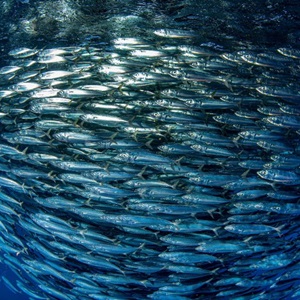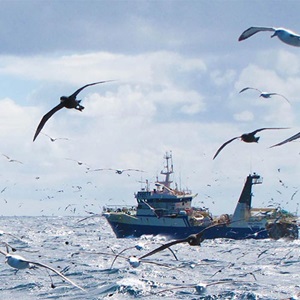Independence, transparency, impartiality and multi-stakeholder governance are central to the MSC’s values and commitment to maintain and strengthen world-leading standards.
We work hard to ensure our standards, strategy and decision-making take account of the views, expertise and experience of a wide range of perspectives, from academia and government, the fishery and market sectors, and the environmental NGO community.
Our governance structure therefore involves a wide range of individuals with different perspectives to ensure that the MSC’s decisions are balanced, reflecting many sectors and interests.
In addition to our governance bodies, stakeholders are invited to participate in consultations on our standards and requirements, and are encouraged to participate in independent fisheries assessments.
The MSC Board of Trustees
The MSC Board of Trustees is our governing body. With advice from the MSC Executive, Technical Advisory Board and Stakeholder Advisory Council, it sets the strategic direction of the MSC, monitors progress and ensures the MSC meets its objectives.
The Board of Trustees meets at least four times a year and has a maximum of nine members.
Main activities
- Ensuring the MSC meets its charitable aims
- Setting the strategic direction of the MSC, and monitoring progress in delivery of strategy
- Ensuring that the MSC is financially secure
- Publicly accounting for expenditure and income
- Ensuring the MSC operates in a legally compliant manner in relevant jurisdictions
- Appointing new Board members and key MSC staff
- Appointing members of the Technical Advisory Board and Stakeholder Advisory Council
Board committees
The MSC Board of Trustees undertakes its work not only at Board meetings, but also through a number of Board Committees, which meet throughout the year to reflect in detail on specific areas of the MSC’s activities and operations. They are chaired
by Board members and their membership is primarily drawn from the MSC Board of Trustees.
Leadership
The Chair of the MSC Board of Trustees leads the Board and is elected for a term of three-years, and may serve up to three terms.
Membership
Trustees are chosen for their knowledge, expertise and support for the MSC. Membership is balanced, encompassing expertise and experience from different sectors and geographical regions (as well as other relevant demographic criteria) to reflect the broad mix of perspectives required for MSC to fulfil its charitable aims.
Potential new Board members are identified through an open, external recruitment process. Trustees are appointed by the MSC Board of Trustees in a personal capacity, not as representatives of their organisations. They serve a maximum three-year term and may stand for reappointment for one further three-year term.
One Board Member is nominated by the MSC Board of Trustees for appointment as the Chair of the MSCI Board.
Mr Giles Bolton – Chair
 Appointed as Chair of the Board in February 2024, Mr Giles Bolton was previously Director of Responsible Sourcing and Packaging at Tesco, one of the world’s largest retailers. Prior to Tesco, Giles had a ten-year career as an aid worker for the British Government, managing
development programmes in Kenya, Rwanda, Iraq, and on trade.
Appointed as Chair of the Board in February 2024, Mr Giles Bolton was previously Director of Responsible Sourcing and Packaging at Tesco, one of the world’s largest retailers. Prior to Tesco, Giles had a ten-year career as an aid worker for the British Government, managing
development programmes in Kenya, Rwanda, Iraq, and on trade.
Giles is the Executive Director of the Ethical Trading Initiative. He is on the Board of the aid transparency NGO Publish What You Fund and is author of the activist book Aid and Other Dirty Business.
Ms Birgit Cameron
 Appointed to the Board in April 2024, Ms Birgit Cameron is the Co-Founder and former Managing Director of Sausalito, California-based Patagonia Provisions, a division of Patagonia Works, founded in 2012 with Patagonia owner Yvon Chouinard. Under Birgit’s direction, Patagonia Provisions introduced a varied line of mission-based food and beverage products intended to address critical environmental issues while establishing a model to help restore the food chain. Patagonia Provisions was introduced to international markets in Europe, Japan and Australia. In 2018, she worked as part of a larger Patagonia effort to establish the Regenerative Organic Alliance, a new high-bar organic certification that includes optimising soil health to sequester more carbon, and values animals' and workers' welfare. Birgit is now Senior Advisor to Align-e Capital and a Board Member of Atomo Beanless Coffee.
Appointed to the Board in April 2024, Ms Birgit Cameron is the Co-Founder and former Managing Director of Sausalito, California-based Patagonia Provisions, a division of Patagonia Works, founded in 2012 with Patagonia owner Yvon Chouinard. Under Birgit’s direction, Patagonia Provisions introduced a varied line of mission-based food and beverage products intended to address critical environmental issues while establishing a model to help restore the food chain. Patagonia Provisions was introduced to international markets in Europe, Japan and Australia. In 2018, she worked as part of a larger Patagonia effort to establish the Regenerative Organic Alliance, a new high-bar organic certification that includes optimising soil health to sequester more carbon, and values animals' and workers' welfare. Birgit is now Senior Advisor to Align-e Capital and a Board Member of Atomo Beanless Coffee.
Mr Kristjan Th. Davidsson – Finance Committee Chair
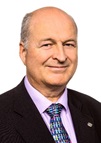 Appointed to the Board in July 2021. Kristjan Th. Davidsson is an Icelandic seafood industry specialist
with more than 35 years of executive and non-executive roles within and related to the international seafood industry, in Iceland, Norway, Chile and Peru. Kristjan’s working experience spans fishing, production, trading/sales of seafood, technology
and services, finance, management, consulting, banking and financial advisory. He has held and holds non-executive roles in companies within the seafood industry, fishing/production/sales, services and technology, banking, internet service and fibre
provider, and a pension fund. He currently manages his own consulting business and an investment company.
Appointed to the Board in July 2021. Kristjan Th. Davidsson is an Icelandic seafood industry specialist
with more than 35 years of executive and non-executive roles within and related to the international seafood industry, in Iceland, Norway, Chile and Peru. Kristjan’s working experience spans fishing, production, trading/sales of seafood, technology
and services, finance, management, consulting, banking and financial advisory. He has held and holds non-executive roles in companies within the seafood industry, fishing/production/sales, services and technology, banking, internet service and fibre
provider, and a pension fund. He currently manages his own consulting business and an investment company.
Ms Maria Damanaki - Development Committee Chair
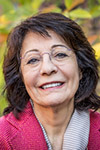 Appointed to the Board in September 2019,Ms Maria Damanaki was previously a principal adviser for SYSTEMIQ/ London, and the Paradise Foundation/China. She served as Global Managing
Director for Oceans at The Nature Conservancy (2014-2020), running marine programs in 27 countries, across all continents, focused on transforming how the world manages its oceans, including sustainable fisheries management, large-scale protection
and restoration of coral reefs and other ecosystems.
Appointed to the Board in September 2019,Ms Maria Damanaki was previously a principal adviser for SYSTEMIQ/ London, and the Paradise Foundation/China. She served as Global Managing
Director for Oceans at The Nature Conservancy (2014-2020), running marine programs in 27 countries, across all continents, focused on transforming how the world manages its oceans, including sustainable fisheries management, large-scale protection
and restoration of coral reefs and other ecosystems.
Maria also co-chairs the UN Sustainability Committee for Blue Growth, and co-chairs the advisory network of the High-Level Panel for Oceans created by the Norwegian Prime Minister and
13 PMs around the world. She is a member of the Friends of Ocean Commission of the World Economic Forum.
Ms Mikel Durham - MSCI Board Chair
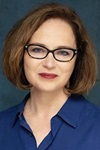 Appointed to the Board in July 2023, Ms Mikel Durham has led food and beverage businesses globally for
over 25 years, and nurtured brands such as Naked Juice, Pepsi, Guinness, Cadbury, amongst others. She currently serves as a Board Director of Tyson Foods, and was previously the Chief Executive of American Seafoods, and Chair of the Genuine Alaskan
Pollock Association. Mikel also volunteered as Vice Chair of Good360, the global leader in product philanthropy, which creates a cycle of good from manufacturers/retailers to charities helping people in need during disasters and every day, and reducing
landfill waste through repurposing.
Appointed to the Board in July 2023, Ms Mikel Durham has led food and beverage businesses globally for
over 25 years, and nurtured brands such as Naked Juice, Pepsi, Guinness, Cadbury, amongst others. She currently serves as a Board Director of Tyson Foods, and was previously the Chief Executive of American Seafoods, and Chair of the Genuine Alaskan
Pollock Association. Mikel also volunteered as Vice Chair of Good360, the global leader in product philanthropy, which creates a cycle of good from manufacturers/retailers to charities helping people in need during disasters and every day, and reducing
landfill waste through repurposing.
Dr Darian McBain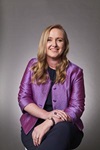 Appointed to the Board in July 2023, Dr Darian McBain is a globally experienced Chief Sustainability
Officer, advisor and board member. Darian is Chief Executive of OCSO Asia and Visiting Professor in Practice for the London School of Economics & Political Science. She also chairs Be Slavery Free, an anti-modern slavery non-profit, and the Global
Dialogue for Seafood Traceability management board. She previously worked as Managing Director, Corporate Affairs & Sustainability for Thai Union, and as Chief Sustainability Officer for the Monetary Authority of Singapore. Darian is a former
member of MSC's Stakeholder Advisory Council.
Appointed to the Board in July 2023, Dr Darian McBain is a globally experienced Chief Sustainability
Officer, advisor and board member. Darian is Chief Executive of OCSO Asia and Visiting Professor in Practice for the London School of Economics & Political Science. She also chairs Be Slavery Free, an anti-modern slavery non-profit, and the Global
Dialogue for Seafood Traceability management board. She previously worked as Managing Director, Corporate Affairs & Sustainability for Thai Union, and as Chief Sustainability Officer for the Monetary Authority of Singapore. Darian is a former
member of MSC's Stakeholder Advisory Council.
Mr Eddy Njoroge - Audit & Risk Committee Chair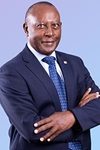 Appointed to the Board in July 2023, Mr Eddy Njoroge is the former CEO of Kenya Electricity Generating Company
(KenGen), where he spearheaded the transformation of the company from a parastatal to a publicly listed company. From 2008 to 2012, Eddy was the President of the Union of Producers and Distributors of Electric Power in Africa. He currently serves
as Chairman of Telkom Kenya and of the Nairobi Securities Exchange and is a board member of CfC Stanbic Bank, Real Insurance Ltd and Proctor & Allan among other companies. Eddy was elected president of ISO (2020-21) and then Special Adviser to
the current ISO president for 2022-23.
Appointed to the Board in July 2023, Mr Eddy Njoroge is the former CEO of Kenya Electricity Generating Company
(KenGen), where he spearheaded the transformation of the company from a parastatal to a publicly listed company. From 2008 to 2012, Eddy was the President of the Union of Producers and Distributors of Electric Power in Africa. He currently serves
as Chairman of Telkom Kenya and of the Nairobi Securities Exchange and is a board member of CfC Stanbic Bank, Real Insurance Ltd and Proctor & Allan among other companies. Eddy was elected president of ISO (2020-21) and then Special Adviser to
the current ISO president for 2022-23.
Dr Kevin Stokes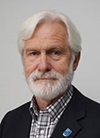 Appointed to the Board in July 2020. Dr Kevin Stokes is a fisheries science, management, and policy consultant with extensive international experience. He has
held senior management positions in both the public and private sector as a fisheries scientist, manager, and adviser. He has provided advice nationally and internationally at senior governmental and ministerial levels, as well as to the fishing,
processing and retail sectors. Kevin has acted as a fisheries assessor, auditor, and peer reviewer for multiple MSC certification assessments for a number of Conformity Assessment Bodies.
Appointed to the Board in July 2020. Dr Kevin Stokes is a fisheries science, management, and policy consultant with extensive international experience. He has
held senior management positions in both the public and private sector as a fisheries scientist, manager, and adviser. He has provided advice nationally and internationally at senior governmental and ministerial levels, as well as to the fishing,
processing and retail sectors. Kevin has acted as a fisheries assessor, auditor, and peer reviewer for multiple MSC certification assessments for a number of Conformity Assessment Bodies.
Dr Sergio Espejo Yaksic
 Appointed to the Board in July 2023, Dr Sergio Espejo Yaksic is a lawyer and a former politician who
has held various high-level positions in the Chilean government throughout his career. He served as Chief Executive of Energy Regulation Enforcement and as a member of the Antitrust Board. He became a member of the Cabinet, as Minister of Transport
and Telecommunications, and was later elected as congressman. He is now Chief Executive Officer of Inmobiliaria Las Lilas Corporation, a Senior Consultant at Vital Comunicaciones, and a Board Member of Fundación COANIL.
Appointed to the Board in July 2023, Dr Sergio Espejo Yaksic is a lawyer and a former politician who
has held various high-level positions in the Chilean government throughout his career. He served as Chief Executive of Energy Regulation Enforcement and as a member of the Antitrust Board. He became a member of the Cabinet, as Minister of Transport
and Telecommunications, and was later elected as congressman. He is now Chief Executive Officer of Inmobiliaria Las Lilas Corporation, a Senior Consultant at Vital Comunicaciones, and a Board Member of Fundación COANIL.
The MSC Technical Advisory Board
The Technical Advisory Board (TAB) works in close collaboration with the MSC Executive to provide advice to the MSC Board of Trustees on technical and scientific matters relating to the MSC Standards and associated policies, including developing methodologies for certification and accreditation, as well as related scientific and technical research.
Leadership
The Technical Advisory Board Chair is appointed by the MSC Board of Trustees, based on recommendations from the MSC Governance Committee and the TAB.
The Chair of the Technical Advisory Board is invited to MSC Board meetings, to ensure that the Technical Advisory Board is engaged in Board proceedings.
Membership
The Technical Advisory Board is appointed by the MSC Board of Trustees, either following an open, external recruitment process or based on recommendations from the MSC Governance Committee and the Technical Advisory Board.
In appointing the membership of the Technical Advisory Board, the MSC Board of Trustees aims to ensure a range of experience and expertise, as well as geographical representation. Members are nominated in a personal capacity not as representatives of their organisations. Members serve a three-year term and may stand for reappointment. The Technical Advisory Board may have up to fifteen members.
Dr Rebecca Lent (USA), Technical Advisory Board Chair
Appointed June 2019
Consultant in Marine Stewardship.
Dr Johann Augustyn (South Africa)
Appointed May 2025
Secretary of the South African Deep-Sea Trawling Industry Association, expert in fisheries research and fisheries management.
Dr Florian Baumann (Germany)
Appointed January 2017
Retired Head of Quality Assurance in a frozen fish processing plant serving 25 years on this job, and performed scientific and regulatory work with the German fish trade association. With expertise in auditing and traceability.
Ms Adriana Fabra (Spain)
Appointed February 2023
Consultant and legal expert in national and international fishery management.
Dr Héctor Martin Fernández Alvarez (Spain)
Appointed September 2023
Sustainability Manager – Advocacy, Policy & Compliance, at Bolton Food – Bolton Group
Ms Alison Friel (UK)
Appointed May 2025
Director, Technical Services, NSF, expert in manufacturing, food service, and retail supply chains.
Dr Nicolas Gutierrez (Italy)
Appointed May 2025
Senior Fishery Officer, Secretary of FAO Sub-Committee on Fisheries Management, FAO, expert in fisheries science and sustainable development.
Ms Celeste Leroux (USA)
Appointed September 2023
CEO, Goldfish; previously Lead for NOAA’s U.S. Seafood Import Monitoring Program
Mr Jose Augusto Pinto de Abreu (Brazil)
Appointed June 2019
Managing Director of Sextante Consultoria, expert on management systems, standardization and regulation, conformity assessment, risk management, and sustainability.
Dr Victor Restrepo (USA)
Appointed July 2012
Chair, Scientific Advisory Committee, and Vice-President for Science, International Seafood Sustainability Foundation (ISSF). Expert in tuna, large pelagics and Regional Fisheries Management Organisations.
Dr Keith Sainsbury (Australia)
Appointed July 2002
Fisheries assessment scientist working for Sainsolutions; expert on aquatic ecosystems and fisheries management systems.
Dr Dale Squires (California)
Appointed May 2025
Adjunct Professor of Economics, University of California, San Diego, expert understanding of economics and direct experience in fishery policy and management.
Ms Michèle Stark (Switzerland)
Appointed June 2016
Executive Advisor, Seafood Advisory Ltd, with expertise in sustainable aquaculture analysis, impact assessments, seafood standards, and certification and accreditation systems.
Dr Chris Zimmermann (Germany)
Appointed June 2010
Director of the Institute of Baltic Sea Fisheries, expert on fisheries stock assessment and management systems.
The 44th MSC Technical Advisory Board (TAB) meeting summary -10 – 11 November 2025
The 43rd MSC Technical Advisory Board (TAB) meeting summary - 21 – 22 May 2025
The 42nd MSC Technical Advisory Board (TAB) meeting summary - 11–12 November 2024
The 41st MSC Technical Advisory Board (TAB) meeting summary - 15-16 May 2024
The 40th MSC Technical Advisory Board (TAB) meeting summary – 29-30 November 2023
The 39th MSC Technical Advisory Board (TAB) meeting summary - 16-18 May 2023
The 38th MSC Technical Advisory Board (TAB) meeting summary - 7 December 2022
The 37th MSC Technical Advisory Board (TAB) meeting summary 19-20 May 2022
The 36th MSC Technical Advisory Board (TAB) meeting summary 29-30 November / 2 December 2021
The 35th MSC Technical Advisory Board (TAB) meeting summary 25-26 May 2021
The 34th MSC Technical Advisory Board (TAB) meeting summary 18-19 March 2021
The 33rd MSC Technical Advisory Board (TAB) meeting summary, 9-10 December 2020
The 32nd MSC Technical Advisory Board (TAB) meeting summary, 26-28 May 2020
The 31st MSC Technical Advisory Board (TAB) meeting summary, 2-5 December 2019.
The 30th MSC Technical Advisory Board (TAB) meeting summary, 3–6 June 2019.
The 29th MSC Technical Advisory Board (TAB) meeting summary, 4–6 December 2018.
The 28th MSC Technical Advisory Board (TAB) meeting summary, 11–15 June 2018.
The 27th MSC Technical Advisory Board (TAB) meeting summary, 11–13 December 2017.
The MSC Stakeholder Advisory Council
The MSC Stakeholder Advisory Council (STAC) works in close collaboration with the MSC Executive to provide advice to the MSC Board of Trustees on relevant strategic, policy or operational issues, including input into the MSC’s formal Standard review processes. It includes representatives from the seafood industry, conservation community, market sector and academia. Its membership reflects diverse expertise, experiences, geographies and interests in relation to the work of the MSC. The Stakeholder Advisory Council is also a formal channel through which all stakeholders, whether members of the Stakeholder Advisory Council or not, can provide their views to the MSC.
Formal correspondence sent directly to individual Stakeholder Advisory Council members or to the STAC collectively will be forwarded to the MSC Executive (Alene Wilton – MSC’s Chief Operating Officer) and copied to the Stakeholder Advisory Council Chair. The MSC will respond, as appropriate, in accordance with its public correspondence protocol. The Stakeholder Advisory Council will not enter into direct correspondence.
The Stakeholder Advisory Council meets at least once per year.
Leadership
The Stakeholder Advisory Council Chair is appointed by the MSC Board of Trustees, based on recommendations from the MSC Governance Committee and the Council, following an open, external recruitment process.
The Chair of the Stakeholder Advisory Council is invited to MSC Board meetings, to ensure that the Stakeholder Advisory Council is engaged in Board proceedings.
Membership
Potential new Stakeholder Advisory Council members are identified through an open, external recruitment process. Stakeholder Advisory Council members normally serve terms of up to three years, and may be appointed for up to two terms.
The Advisory Council comprises up to seventeen members, six of whom are from the seafood industry (processing or harvest), six of whom are from the conservation community; and two from the market sector. Within this membership, the MSC strives to ensure adequate representation from developing world and small-scale fishery interests. The remaining three seats on the Council are undesignated and used to ensure a balanced membership in the light of the MSC’s strategic objectives.
Ms Heather Brayford – Stakeholder Advisory Council Chair
Appointed August 2017
Government of Western Australia, Department of Primary Industries and Regional Development, Australia
Ms Bernadette Butfield
Appointed October 2023
Senior Policy Officer, UK Marine team, RSPB and Birdlife International
Dr Eric Gilman
Appointed May 2025
Director of Environmental Sustainability, Liancheng Overseas Fisheries Group
Ms Kristina Guldbaek
Appointed May 2025
Project Manager, Sustainable Fisheries Greenland
Mr Marcelo Hidalgo
Appointed July 2022.
Chief Operating Officer, FIA, Papua New Guinea
Ms Susan Jackson
Appointed October 2023
President, International Seafood Sustainability Foundation (ISSF) and International Seafood Sustainability Trade Association (ISSA)
Mr Madoda Khumalo
Appointed October 2023
Strategic Services Director, Sea Harvest Corporation (Pty) Ltd
Ms Sofie Smedegaard Mathiesen
Appointed July 2023
Biologist, Danish Fishermen's Producer Organization (DFPO)
Dr Alexia Morgan
Appointed May 2025
Ocean Wildlife Manager, Sustainable Fisheries Partnership
Dr Tom Pickerell
Appointed October 2023
Director, Ocean Program – World Resources Institute
Mr Gabriel Quijandría
Appointed May 2025
Regional Director, South America, International Union for Conservation of Nature
Dr Bryce Stewart
Appointed July 2022
Senior Research Fellow, Marine Biological Association and Associate Professor, University of Plymouth (UK)
National Commission for Aquaculture and Fisheries
Ms Mod Talawat
Appointed July 2022
Consultant, Fishery Improvement Projects, Thailand
Appointed May 2025
Non-Executive Chairman of NovaNam (Pty) Ltd Namibia and Nueva Pescanova South Africa (Pty) Ltd South Africa, as well as a Non-Executive Director of both companies
The MSC Stakeholder Advisory Council (STAC) meeting summary - Nov 2025
The MSC Stakeholder Advisory Council (STAC) meeting summary - May 2025
The MSC Stakeholder Advisory Council (STAC) meeting summary - November 2024
The MSC Stakeholder Advisory Council (STAC) meeting summary - May 2024
The MSC Stakeholder Advisory Council (STAC) meeting summary - November 2023
The MSC Stakeholder Advisory Council (STAC) meeting summary - April 2023
The MSC Stakeholder Advisory Council (STAC) meeting summary - December 2022
The MSC Stakeholder Advisory Council (STAC) meeting summary - May 2022
The MSC Stakeholder Advisory Council (STAC) meeting summary December 2021
The MSC Stakeholder Advisory Council (STAC) meeting summary May 2021
The MSC Stakeholder Advisory Council (STAC) meeting summary March 2021
The MSC Stakeholder Advisory Council (STAC) meeting summary Nov-Dec 2020
The MSC Stakeholder Advisory Council (STAC) meeting summary May 2020
The MSC Stakeholder Advisory Council (STAC) meeting summary 15-17th October 2019.
The MSC Stakeholder Advisory Council (STAC) meeting summary 12–13th March 2019.
The MSC Stakeholder Advisory Council (STAC) meeting summary 12–13th November 2018.
The Marine Stewardship Council International Board
Marine Stewardship Council International (MSCI) is a wholly owned trading subsidiary of the MSC. Its Board provides oversight of MSCI’s commercial and marketing activities, which are primarily focused on ecolabel licensing, and supporting public education campaigns and growing awareness and understanding of sustainable seafood and the MSC ecolabel. Membership includes the Chair of the MSC Board of Trustees and the MSC’s Chief Executive.
A Member of the MSC Board is appointed as Chair of the MSCI Board.
Ms Mikel Durham, MSCI Board Chair
Mr Giles Bolton, MSC Board of Trustees Chair
Ms Birgit Cameron
Mr Rupert Howes, MSC Chief Executive
Mr Fernando Lago
Subsidiary boards
The MSC has established several other subsidiary companies in key jurisdictions, most of which are registered charities. These are separate legal entities for the purposes of taxation, regulation and charitable activities. Each has a board to oversee its operations.
Working groups & expert panels
In addition to our governance bodies, standing and ad hoc working groups or expert panels may be established by the MSC Board of Trustees, Technical Advisory Board or Stakeholder Advisory Council to address specific topical issues. Their members come from the MSC Board of Trustees, Technical Advisory Board and Stakeholder Advisory Council, and may also include other independent subject-matter experts who are invited to advise the MSC in these ad hoc groups.
If you have any questions about our governance structures and processes, or you are interested in participating in the MSC’s stakeholder consultations, please contact the MSC’s Chief Operating Officer.
| Date of issue: | 15 March 2024 |
|---|


.tmb-thumb300.jpg?Status=Master&Culture=en&sfvrsn=67a459bc_1)
